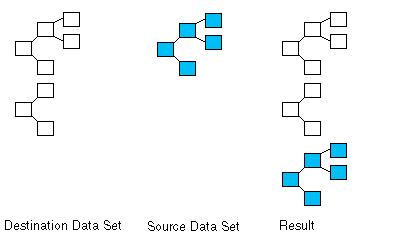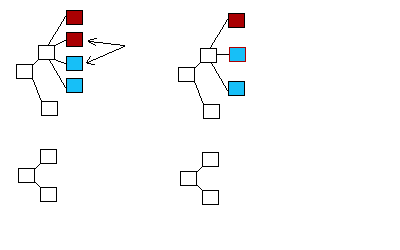| Visual Basic (Declaration) | |
|---|---|
Public Sub Copy( _ ByVal dataSet As DicomDataSet, _ ByVal destination As DicomElement, _ ByVal source As DicomElement _ ) | |
| Visual Basic (Usage) |  Copy Code Copy Code |
|---|---|
| |
| C# | |
|---|---|
public void Copy( DicomDataSet dataSet, DicomElement destination, DicomElement source ) | |
| Managed Extensions for C++ | |
|---|---|
public: void Copy( DicomDataSet* dataSet, DicomElement* destination, DicomElement* source ) | |
| C++/CLI | |
|---|---|
public: void Copy( DicomDataSet^ dataSet, DicomElement^ destination, DicomElement^ source ) | |
Parameters
- dataSet
- The Data Set to be copied (the source Data Set).
- destination
- A data element within the destination Data Set. A copy of the source Data Set will be inserted as the child of this data element.
- source
- A data element within the source Data Set. All children, grandchildren, etc., of this element will be added to the destination Data Set.

If source is not null and destination is null, the children of source will be added at the root level of the destination Data Set (i.e., as siblings to elements at the highest level). This can be seen in the diagram below. Note that the source elements to be added are in blue.

If source is null and destination is not null, the entire source Data Set will be added as children to destination. This can be seen in the diagram below.

If source and destination are both not null, then the children of source are added as the children of destination. This can be seen in the diagram below. The original children of destination are in red and the source elements to be added are in blue.

If an inserted element has the same tag value as a destination element at the same level and with the same parent, then the value from the source element is copied into the destination element and any child elements are added accordingly. For example, the diagram below shows the result of a call to Copy. If the two elements indicated by the arrows have the same tag value, the value from the source element is copied into the destination element and the structure on the right results. This is shown by the red outline of the destination element with the blue center of the source element.

To make the destination Data Set an exact copy of the source Data Set, instead of inserting it within the destination Data Set, you must call Reset on the destination Data Set, before calling Copy.
Target Platforms: Microsoft .NET Framework 2.0, Windows 98, Windows NT 4.0, Windows Millennium Edition, Windows 2000, Windows XP Home Edition, Windows XP Professional, Windows Server 2003 family




